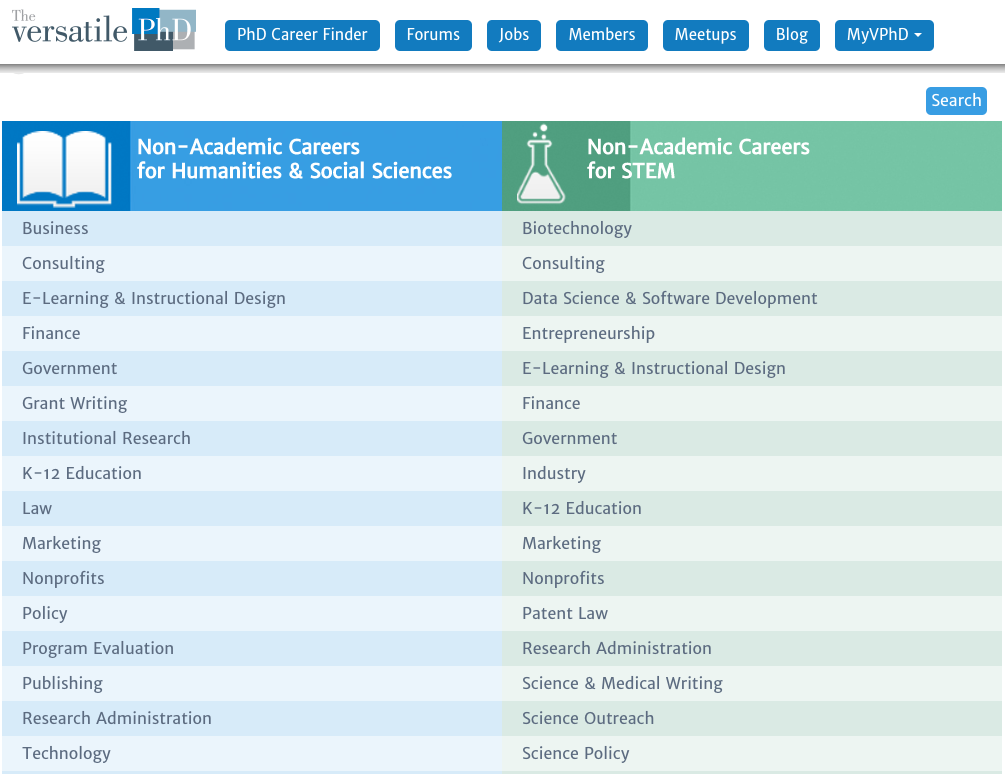Anytime you are introducing graduate students or postdocs to the universe of careers beyond the traditional options, the PhD Career Finder is an excellent place to start. It is a handy overview of career paths for Humanities/Social Science PhDs and for those in STEM fields, about twenty of each.

Just looking at the list can come as instant relief to stressed-out students who fear that there aren’t many really good careers outside the academy. The descriptions for each career provide more information. A reader gets a sense of the career without too much detail. Greater detail is available in the Panel Discussions for those genuinely interested and ready to absorb.
If you are giving a short workshop, your learning objectives can be as simple as making sure they know what VPhD is, where to find the PhD Career Finder on the site, and what kinds of information they will find there. Just knowing it exists can be a big help! In longer courses, the PhD Career Finder can be fodder for a thought-provoking assignment: “Read about the careers for your discipline, pick two that interest you and write about why they interest you and what skills or experience you might want to add in order to enter each field.” Then you could do an in-class small-group exercise: have students discuss in threes or fours which careers interest them and why. A follow-up assignment could be, “Take the career that interests you the most, read the panel discussion associated with that career, and write a checklist for yourself for how you would go about exploring that career further.” If your class happens to coincide with a Panel Discussion, great, use that! Have them follow the week-long discussion, ask a question of the panelists, and discuss that career in class.
Another good resource for career exploration: Career Autobiographies. These first-person narratives are written by PhDs and ABDs five or more years out of their PhD and into their post-academic careers.
 They have been through one, two, even three professional moves in their time since leaving the academy. These stories illustrate several important facts: the first career you choose or job you get does not define you like it does on the faculty track. Your interests will continue to evolve; it is highly doubtful that you will do one thing for the rest of your life. And…versatility is a major part of long-term professional advancement and success.
They have been through one, two, even three professional moves in their time since leaving the academy. These stories illustrate several important facts: the first career you choose or job you get does not define you like it does on the faculty track. Your interests will continue to evolve; it is highly doubtful that you will do one thing for the rest of your life. And…versatility is a major part of long-term professional advancement and success.
(If you’re signed in but are blocked from accessing a Career Autobiography, it means you need to pass through your institution’s authentication portal to reinstate your access upgrade, which will then last for a year. Find your institution’s portal on this list and authenticate yourself as directed. The same applies to students and anyone else in your institution’s service pool.)
Bottom line: The PhD Career Finder, with its career descriptions and long-term bios, is a gateway to nonacademic career exploration!

